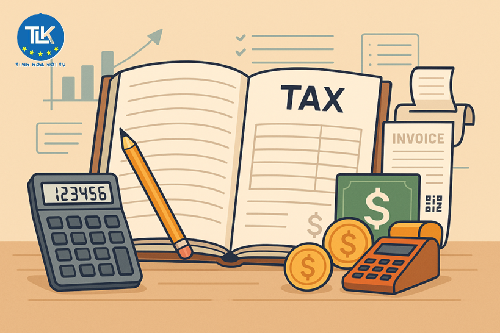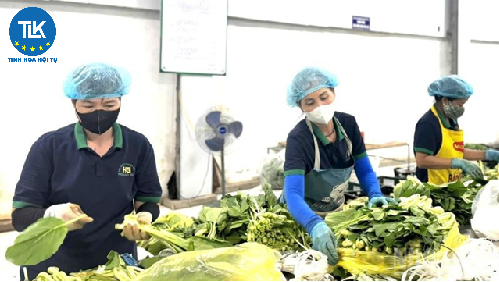On April 29, 2025, the Director of the Customs Department issued Decision No. 467/QĐ-CHQ promulgating the procedures for inspection and determination of the origin of exported and imported goods.
Photo 1: Regulations on the Inspection of Certificate of Origin Documents from April 29, 2025_ Hotline: 097 211 8764
According to Article 3 of Decision No. 467/QĐ-CHQ, customs officers are responsible for inspecting certificate of origin documents in both paper and electronic formats. Specifically:
(1) For paper-based certificate of origin documents:
If the customs declarant submits a certificate of origin document in paper form, customs officers shall compare the information declared in the customs declaration with the scanned version of the paper-based certificate of origin document, which must be digitally signed and submitted via the Customs Electronic Data Processing System, pursuant to Clause 7, Article 1 of Circular No. 39/2018/TT-BTC.
(2) For electronic certificate of origin documents, there are three cases:
- Case 1: Certificates of origin issued via official portals:
Customs officers shall verify the declared information on the customs declaration form and apply preferential tariff rates if the certificate of origin document is issued via:
+ The National Single Window Portal;
+ The ASEAN Single Window Portal; or
+ The official electronic portal of the competent authority in the exporting country (officially notified).
Note: Customs declarants are not required to submit additional physical certificate of origin documents in this case.
In the event of changes to the search link or exporter code, the Customs Department will issue a notification and publish it on the Customs e-portal to ensure uniform implementation among local customs offices.
- Case 2: Incomplete information on the electronic portal:
If the information provided on the website of the competent authority of the exporting country is insufficient to verify the authenticity of the certificate of origin document, customs officers will:
+ Review the website;
+ Compare it with the electronic certificate of origin document or the scanned paper version;
+ Examine the set of customs clearance documents submitted through the system;
+ Coordinate with actual inspection results of goods (if applicable).
- Case 3: System errors or lack of data:
If the electronic system is malfunctioning or no data is available on the portal, customs officers shall:
+ Capture a screenshot of the system error or the “no data” message;
+ Issue a directive in the system requiring the declarant to supplement the certificate of origin document in electronic data format or a scanned copy of the paper document with a digital signature;
+ Proceed with processing and storing the information in accordance with the regulations.
Accordingly, Decision No. 467/QĐ-CHQ provides a systematic and flexible framework for inspecting certificate of origin documents as part of customs procedures, depending on the format of the documents (paper or electronic) and the accessibility of the relevant online information. Customs authorities prioritize the use of electronic information from official portals to streamline procedures for declarants. However, where online information is insufficient, erroneous, or where a paper-based certificate is provided, verification through supporting electronic documents and physical inspection (if necessary) remains essential to validate the certificate of origin document and apply preferential tariffs appropriately. This approach reflects both digital adaptability and regulatory rigor in managing the origin of goods.
Decision No. 467/QĐ-CHQ takes effect from April 29, 2025.
=> See more: Social housing rental price frame in Hanoi from April 14, 2025

Photo 2: Free Legal Consultation_Hotline: 097 211 8764
Social and Economic General Department – TLK Law Firm
Dear readers, TLK Law Firm not only provides you with useful information about economic and socio-cultural life but also offers professional legal services, accounting, taxation, and trade promotion with many years of experience.
With a commitment to fulfilling our social responsibility, if you need advice on legal issues, please contact us at hotline: 097 211 8764 for direct consultation with our lawyers (completely free of charge).












